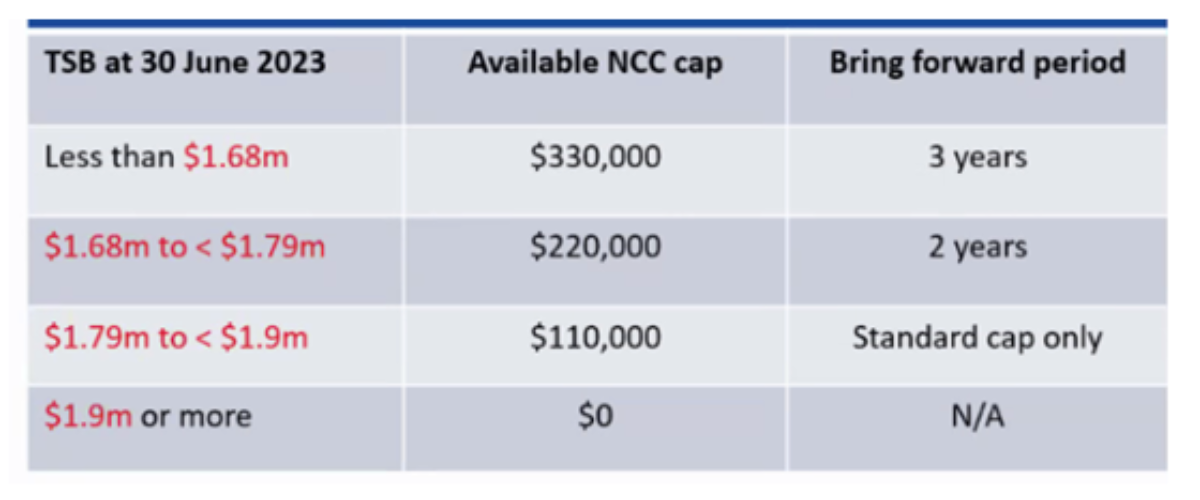Ask the Expert: More super tips to reduce future tax


Question 1
- Hi Craig, love your column, it’s always a must read. With regards to the taxable taxed component and a tax-free component of super, a while back you wrote: ‘A popular strategy for people in this situation is to cash out some super after age 60, once you have met a condition of release, and put it back in via a non-concessional contribution.’ You say ‘after age 60’, so my question is – is there any age limit or any other restriction to where this cannot be done? Davo
Hi Davo, thanks very much for your comments.
Yes, this is a popular strategy for reducing future tax on your estate. Sometimes this tax is referred to a ‘death tax’.
There are a few restrictions, so here we go:
- Firstly, you have to be able to get your money out of super AND you don’t want to have to pay tax on the withdrawal.
If you take the money out from 60 onwards there is no tax, so that is the starting point.
Next, you need to have left a job from age 60 or reach age 65 to be able to access all of your super.
- Then, you need to be able to get the money back into super.
The good news here is that there is no longer a work test requirement in order to make non-concessional (after-tax) contributions to super. These can be done right up until you reach the age of 75.
- Finally, you need to be aware of non-concessional superannuation cap. This is how much you can contribute to super as an after-tax contribution. The standard annual cap is currently $110,000. However, you can ‘bring forward’ the next two years and make a contribution of $330,000 in one financial year. But then you cannot make any more contributions for the next two years.
As an example, you could withdraw and re-contribute $330,000 at age 65, and then do the same again at ages 68, 71 and 74.
You would only bother doing this if you still had taxable super components you wanted to convert to tax-free components.
One more thing to be aware of is that you can only make non-concessional (after-tax) contributions to super if your total super balance is below a certain threshold, see table below (also note that the non-concessional cap and the thresholds may indexed next financial year).
Question 2
- Hi, my partner and myself are both retired from the public service – 59 and 65 respectively – on PSS pensions. We are liable to pay tax on our pensions, the amount depending on other income. We also have personal super accounts that we contribute to. My question is, if we convert our personal super to a pension fund and draw a second income stream, are the funds tax free or are they added to our PSS pension and taxed as per other income?
The PSS lifetime pensions are normally very generous so well done on having them.
However, PSS and some other government and corporate funds are what are known as ‘Untaxed funds’.
Largely there was no tax applied to contributions or earnings. That is why they are now taxable once converted to an income stream (or taken as a lump sum).
The vast majority of super funds these days are ‘taxed’ funds. That is, they are opposite to untaxed funds in that they would have taxed contributions and earnings but can then be received tax free from age 60.
Therefore, so long as you convert your other super to a pension from age 60 or later, there will be no tax on them, and they will also have no impact on other taxable income, such as your PSS pensions.
Question 3
- I am considering making a non-concessional contribution to my super fund of $330k using the bring forward rule. I am currently still working, but if I retire in, say, six months from now will that affect my ‘bring forward’ contribution?
The ‘bring forward rule’ allows you to make a large after tax (non-concessional) contribution to super.
Normally you are restricted to a non-concessional cap of $110,000 per financial year, but under the bring forward rules you can use the current year’s cap plus two future years, so in this instance $330,000.
You would not then be able to make any further non-concessional contributions for three years.
In terms of eligibility to make the contribution, you just need to make it before you turn 75 and have a total super balance of below $1.68 million as at the previous June 30.
Retiring in six months will not alter the above eligibility rules as a work test is no longer required to make non-concessional contributions.
Craig Sankey is a licensed financial adviser and head of Technical Services & Advice Enablement at Industry Fund Services
Disclaimer: The responses provided are general in nature, and while they are prompted by the questions asked, they have been prepared without taking into consideration all your objectives, financial situation or needs.
Before relying on any of the information, please ensure that you consider the appropriateness of the information for your objectives, financial situation or needs. To the extent that it is permitted by law, no responsibility for errors or omissions is accepted by IFS and its representatives.
The New Daily is owned by Industry Super Holdings









